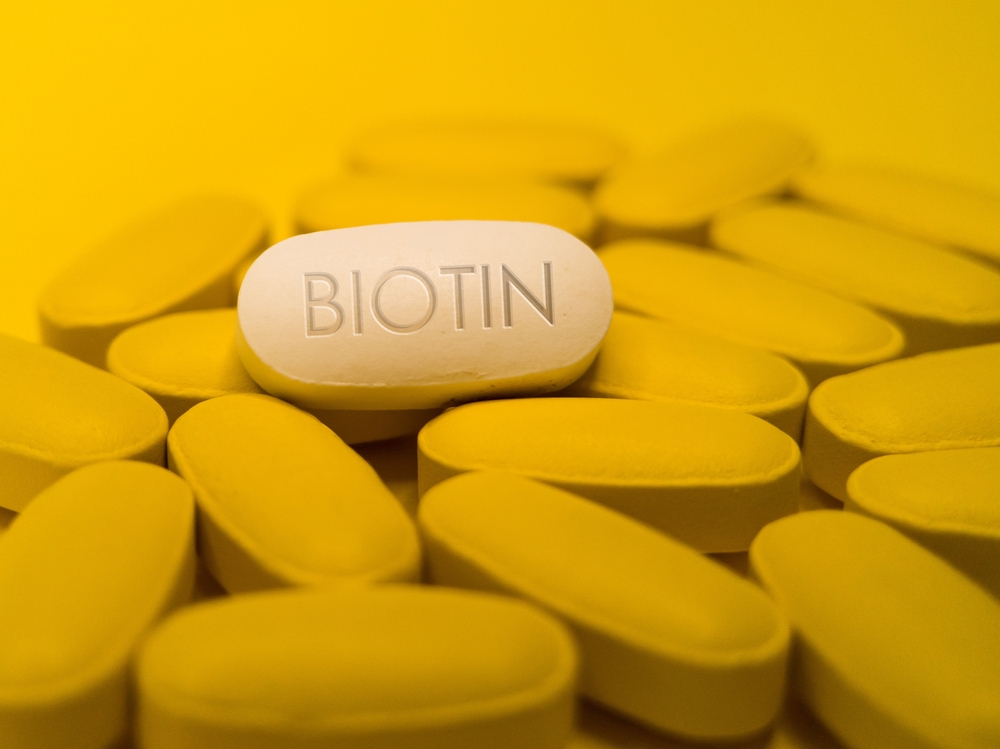The group of B vitamins contributes to many body functions and promotes overall health. Biotin is also a member of B complex vitamins, which are also known as B-7, coenzyme R, and vitamin H. It helps in breaking down fat and carbohydrates from the foods you eat and converting them into energy. Your body uses this energy to perform many functions. Well, your hair, skin, and other body parts are dependent on biotin. Hair thinning is also a common symptom of biotin deficiency.
But sometimes, biotin deficiency can lead to different health problems, including hair loss, damaged skin, imbalanced blood sugar levels, etc.
Let’s explore more about biotin deficiency.
Table of Contents
What is Biotin Deficiency?
Biotin deficiency is rare compared to other deficiencies. Some people who do not get proper biotin from their diet can result in biotin deficiency. It is a naturally found vitamin in foods, but you may need to get more sources for the proper amount of biotin. You can identify biotin deficiency from the signs and symptoms that you may experience.
What are the Signs and Symptoms of Biotin Deficiency?
Someone with a biotin deficiency may experience the following signs and symptoms.
- Loss of appetite
- Fatigue
- Nausea
- Red rashes on the skin
- Fatigue
- Depression
- Dry eyes
- Brittle hair
- Scaly skin
- Insomnia
- Muscle pain
- Seizures
- Difficulty walking
- Cracking in the corners of the mouth
- Intestinal tract changes
- Burning sensation in feet and hands
What Can Cause Biotin Deficiency?
Biotin deficiency is not as common as other vitamin deficiencies. B7 vitamin may be low for some potential reasons, as follows:
Intravenous (IV) Feeding
Intravenous feeding means that you can get limited food options which may cause biotin deficiency. If you receive nutrition from an IV, it will put you at high risk of B7 deficiency. Your doctor may prescribe you some supplements to prevent its deficiency.
Dieting for a Long Period
People who want to lose weight often go with a strict dieting plan. It limits calorie intake and also increases the risk of biotin deficiency. In this way, you get limited minerals and vitamins from the diet you eat. This is the reason you need to get help from an expert about the dieting plan, which can provide all the essential nutrients and also contribute to your weight goal.
Genetic Causes
Some genetic disorders may develop biotin deficiency. There may be different causes of this deficiency, including biotin transport deficiency, holocarboxylase synthetase deficiency, phenylketonuria, biotin transport deficiency, etc.
Experts from Aga Khan University Hospital say that phenylketonuria is one of the common genetic disorders which may cause biotin deficiency. Doctors suggest screening infants to diagnose these conditions. Untreated conditions may lead to severe neurological problems.
Intestinal Problems
Some people may have intestinal problems, which affect the body’s ability to absorb the nutrients from foods. The inability of the body may lead to improper body functions. This may cause conditions like colitis and Crohn’s disease.
Alcohol Consumption
Alcohol exposure often affects the absorption of biotin, which leads to its deficiency in the body. Avoiding alcohol consumption can reduce the appearance of its symptoms.
Pregnancy
Marginal biotin deficiency may develop during pregnancy. One-third of pregnant women may develop this condition and experience some symptoms.
Medications
Medicines can also affect the absorption of vitamins which causes B7 deficiency in the body. These medications include antibiotics and anti-seizures. It happens when they destroy the good bacteria in the gut.
What is the Best Treatment and Prevention of Biotin Deficiency?
Biotin deficiency can be treated and prevented with a healthy diet and intake of supplements, including:
Biotin Rich Diet
Biotin is a vitamin that you can find in many foods naturally. Every person should notice the count of biotin per day. An adult should eat almost thirty micrograms, and a child should get five micrograms. Pregnant women should take biotin thirty-five micrograms a day. You can eat a diet rich in biotin, such as cooked eggs, green peas, lentils, sunflower seeds, and sunflower butter, dairy products, seafood, whole grains, legumes, lentils, carrots, mushrooms, organ meats, etc.
Try Supplements
Multivitamins contain B-7, but you can also take their supplements. Your doctor can suggest to you the amount of biotin you need per day.
What Experts Say about Biotin Deficiency…
Experiencing symptoms of biotin deficiency needs your attention and proper treatment. Biotin deficiency is treatable, and you can manage its symptoms with some changes in your daily diet plan. Your doctor may ask for some tests if biotin deficiency is caused by some other health problems, like intestinal disorders. You should speak to Dr.Sarah Perveze if you want to take biotin supplements and learn about their amount.
